CLASS XI TEXT
- Daybreak By : H. W. Longfellow
2. Brotherhood : Homage To Claudius Ptolemy By : Octavio Paz
3. Meeting At Night By : Robert Browning - Upon Westminster Bridge By : William Wordsworth
5. The Sick Rose By : William Blake - Leela’s Friend By : R.K. Narayan
DAYBREAK BY : H.W.LONGFELLOW
A wind came up out of the sea,
And said, "O mists, make room for me."
It hailed the ships, and cried, "Sail on,
Ye mariners, the night is gone."
And hurried landward far away,
Crying, "Awake! it is the day."
It said unto the forest, "Shout!
Hang all your leafy banners out!"
It touched the wood-bird's folded wing,
And said, "O bird, awake and sing."
And o'er the farms, "O chanticleer,
Your clarion blow; the day is near."
It whispered to the fields of corn,
"Bow down, and hail the coming morn."
It shouted through the belfry-tower,
"Awake, O bell! proclaim the hour."
It crossed the churchyard with a sigh,
And said, "Not yet! in quiet lie."
BROTHERHOOD BY : OCTAVIO PAZ
MEETING AT NIGHT BY : ROBERT BROWNING
The grey sea and the long black land;
And the yellow half-moon large and low;
And the startled little waves that leap
In fiery ringlets from their sleep,
As I gain the cove with pushing prow,
And quench its speed i' the slushy sand.
II
Then a mile of warm sea-scented beach;
Three fields to cross till a farm appears;
A tap at the pane, the quick sharp
scratch
And blue spurt of a lighted match,
And a voice less loud, thro' its joys and fears,
Than the two hearts beating each to each!
UOPN WESTMINSTER BRIDGE BY : WILLIAM WORDSWORTH
Earth has not anything to show more fair:
Dull would he be of soul who could pass by
A sight so touching in its majesty:
This City now doth, like a garment, wear
The beauty of the morning; silent, bare,
Ships, towers, domes, theatres, and temples lie
Open unto the fields, and to the sky;
All bright and glittering in the smokeless air.
Never did sun more beautifully steep
In his first splendour, valley, rock, or hill;
Ne'er saw I, never felt, a calm so deep!
The river glideth at his own sweet will:
Dear God! the very houses seem asleep;
And all that mighty heart is lying still!
LEELA'S FRIEND BY R.K. NARAYAN
www.sonatanenglish.page4.me
Sidda was hanging about the gate at a moment when Mr Sivasanker was standing in the front veranda of his house brooding over the servant problem.
"Sir, do you want a servant?" Sidda asked.
"Come in" said Mr Sivasanker.
As Sidda opened the gate and came in, Mr Sivasanker subjected him to a scrutiny and said to himself,
"Doesn’t seem to be a bad sort
... At any rate, the fellow looks tidy."
"Where were you before?" he asked.
Sidda said, "In a bungalow there," and indicated a vague somewhere, "in the doctor’s house.". "What is his name?". "I don’t know master," Sidda said. "He lives near the market." "Why did they send you away?". "They left the town, master," Sidda said, giving the stock reply.
Mr Sivasanker was unable to make up his mind. He called his wife. She looked at Sidda and said, "He doesn’t seem to me worse than the others we have had." Leela, their five-year-old daughter, cane out, looked at Sidda and gave a cry of joy. "Oh Father!" she said "I like him. Don’t send him aay. Let us keep him in our house." And that decided it.
Sidda was given two meals a day and four rupees a month, in return for which he washed clothes, tended the garden, ran errands, chopped wood and looked after Leela.
"Sidda, come and play!" Leela would cry, and Sidda had to drop any work he might be doing and run to her, as she stood in the front garden with a red ball in her hand. His company made her supremely happy. She flung the ball at him and he flung it back. And then she said, "Now throw the ball into the sky." Sidda clutched the ball, closed his eyes for a second and threw the ball up. When the ball came down again, he said, "Now this has touched the moon and come. You see here a little bit of the moon sticking." Leela keenly examined the ball for traces of the moon and said, "I don’t see it."
"You must be very quick about it," said Sidda, "because it will all evaporate and go back to the moon. Now hurry up...." He covered the ball tightly with his fingers and allowed her to peep through a little gap.
"Ah yes," said Leela. "I see the moon, but is the moon very wet?"
"Certainly it is," Sidda said.
"What is in the sky, Sidda?"
"God, he said.
"If we stand on the roof and stretch our arms, can we touch the sky?"
"Not if we stand on the roof here," he said. "But if you stand on a coconut tree you can touch the sky."
"Have you done it?" asked Leela.
"Yes, many times" said Sidda. "Whenever there is a big moon, climb a coconut tree and touch it."
"Does the moon know you?"
"Yes, very well. Now come with me. I will show you something nice." They were standing near the rose plant. He said, pointing, "You see the moon there, don’t you?".
"Yes."
"Now come with me," he said, and took her to the backyard. He stopped near the well and pointed up. The moon was there, too. Leela clapped her hands and screamed in wonder, "The moon here! It was there! How is it? "
" I have asked it to follow us about."
Leela ran in and told her mother, "Sidda knows the moon." At dusk he carried her in and she held a class for him. She had a box filled with catalogues, illustrated books and stumps of pencils. It gave her great joy to play the teacher to Sidda. She made him squat on the floor with a pencil between his fingers and a catalogue in front of him. She had another pencil and a catologue and commanded, "Now write." And he had to try and copy whatever she wrote in the pages of her catologue. She knew two or three letters of the alphabet and could draw a kind of cat and crow. But none of these could Sidda even remotely copy. She said, examining his effort, "Is this how I have drawn the crow? Is this how I have drawn the B?" She pitied him, and redoubled her efforts to teach him. But that good fellow, though an adept at controlling the moon, was utterly incapable of plyng the pencil. Consequently, it looked as though Leela would keep him thee, pinned to his seat till his stiff, inflexible wrist cracked. He sought relief by saying, "I think your mother is calling you in to dinner." Leela would drop the pencil and run out of the room, and the school hour would end.
After dinner Leela ran to her bed. Sidda had to be ready with a story. He sat down on the floor near the bed and told incomparable stories: of animals in the jungle, of gods in heaven, of magicians who could conjure up golden castles and fill them with little princesses and their pets....
Day by day she clung closer to him. She insisted upon having his company all her waking hours. She was at his side when he was working in the garden or chopping wood, and accompanied him when he was sent on errands.
One evening he went out to buy sugar and Leela went with him. When they came home, Leela’s mother noticed that a gold chain Leela had been wearing was missing. "Where is your chain?" Leela looked into her shirt, searched and said, "I don’t know." Her mother gave her a slap and said, "How many times have I told you to take it off and put it in the box?"
Sidda! Sidda!” she shouted a moment later. As Sidda came in, Leela’s mother threw a galance at him and thought the fellow already looked queer. She asked him about the chain. His throat went dry. He blinked and answered rthat he did not know. She mentioned the police and shouted at him. She had to go back into the kitchen for a moment because she had left something in the ovn. Leela followed her, whining, “Give me some sugar, Mother, I am hungry.” When they came out again and called Sidda! Sidda!” there was no answer.Sidda had vanished into the night.
Mr. Sivasankar came home an hour later, grew very excited over all this, went to the police station and lodged a complaint.
After her meal Leela refused to go to bed. “I won’t sleep unless Sidda comes and tell me stories. I don’t like you. You are always abusing and worrying Sidda. Why are you so rough?
“ But he has taken away your chain…”
“ Let him. It doesn’t matter. Tell me a story.”
“Sleep, sleep ,” said Mother, attempting to make her lie down on her lap.
“Tell me a story, Mother.” Leela said.It was surely impossible for her mother to think of a story now. Her mind was disturbed. The thought of Sidda made her panicky. The fellow, with his knowledge of the household, might come in at night and loot. She shuddered to think what a villain she had been hourbouring all these days. It was God’s mercy that he hadn’t killed the child for the chain.“Sleep, Leela, sleep,” she cajoled.
Can’t you tell the story of the elephant? Leela asked.
“No.”
Leela made a noise of deprecation and asked, “ Why should not Sidda sit in our chair, Mother?”Mother didn’t answer the question.Leela said a moment later, “Sidda is gone because he wouldn’t be allowed made to sleep inside the house just as we do. Why should he always be made to sleep outside the house, Mother? I think he is angry with us, Mothe.” By the time Sivasankar returned, Leela had fallen asleep,He said, “What a risk we took in engaging that fellow. It seems he is an old criminal. From the description I gave, the inspector was able to identify him in a moment.”
“The police know his haunts. They will pick him up very soon, don’t worry. The inspector was furious that I didn’t consult him before employing him…”
Four days later, just as Father was coming home from the office, a police inspector and a constable brought in Sidda. Sidda stood with bowed his head. Leela was overjoyed.
“Sidda! Sidda! She cried, and ran down the steps to meet him.
“Don’t go near him.” the inspector said, stopping her
“Why not?”
“He is a thief. He has taken away your gold chain.”
“Let him. I will have a new chain.” Leela said., and all of them laughed. And then Mr. Sivasankar spoke to Sidda and then his wife addressed him with a few words on his treachery. They then asked him where he had put the chain.
“ I have not taken it.” Sidda said, feebly, looking at the ground.
“Why did you run away without telling us?” asked Leela’s mother.There was no answer. Leea’s face became red. “Oh, policeman, leave him alone. I want to play with him.”
“My dear child.” Said the police inspector, “ he is a thief.”
“Let him be.” Leela replied haughtily.
“ What a devil you must be to steal a thing from such an innocent child!” remarked the inspector. “Even now it is not too late. Return it. I will let you go provided you promise not to do such a thing again.” Leela’s father and mother , too, joined in the appeal. Leela felt disgusted with the whole business. “Leave him alone, he hasn’t taken the chain.” “You are not at all a reliable witness, my child,” observed the inspector humorously.
“No, he hasn’t taken it!” Leela screamed.
Her father said, “Baby, if you don’t behave, I will be angry with you.”
Half an hour later, the inspector said to the constable, “Take him to the station. I think I shall have to sit with him tonight.”The constable took Sidda by the hand and turned to go. Leela ran behind them crying.
“Don’t take him. Leave him here, leave him here.” Leela clung to Sidda’s hand.He looked at her mutely, like an animal. Mr. Sivasankar carried back Leela into the house. Leela was in tears.
Every day when Mr. Sivasankar came home he was asked by his wife, “Any news of the jewel?” and by his daughter, “Where is Sidda?”
“They still have him in the lockup, though he is very stubborn and won’t say anything about the jewel,” said Mr. Sivasankar.
“Bah! What a rough fellow he must be!” said his wife with a shiver.
“ Oh!, these fellows who have been in jail once or twice lose all fear. Nothing can make them confess.”
A few days later, putting her hand into the tamarind pot in the kitchen Leela’s mother picked up the chain. She took it to the tap and washed off the coating of tamarind on it. It was unmistakably Leela’s chain. When it was shown to her, Leela said, “Give it here. I want to wear the chain.”
“How did it get into the tamarind pot? Mother asked.
“Somehow,” replied Leela.
“Did you put it in?” asked Mother.
“Yes.”
“When?”
“Long ago , the other day.”
“Why didn’t you say so before?”
When Father came home and was told, he said, “The child must have any chain hereafter. Didn’t I tell you that I saw her carrying it in her hand once or twice? She must have dropped it into the pot sometime….And all this bother on account of her”.
“What about Sidda?” asked Mother.
“I will tell the inspector tomorrow… in any case, we couldn’t have kept a criminal like him in the house.”
www.sonatanenglish.page4.me



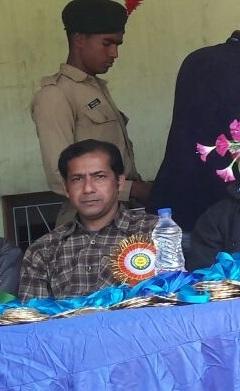





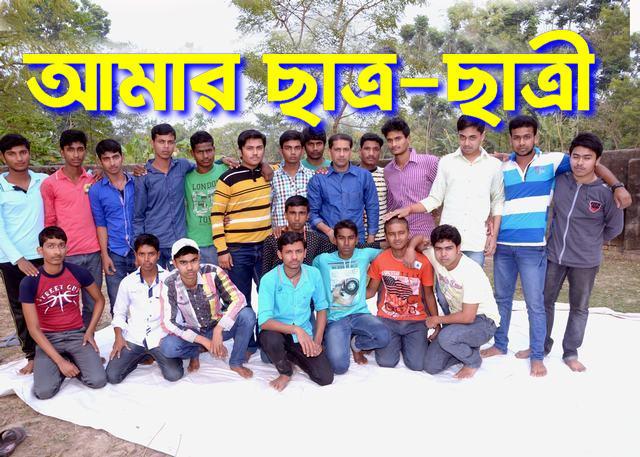


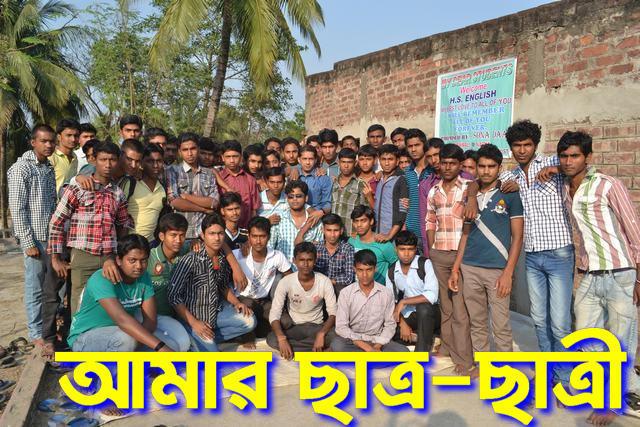



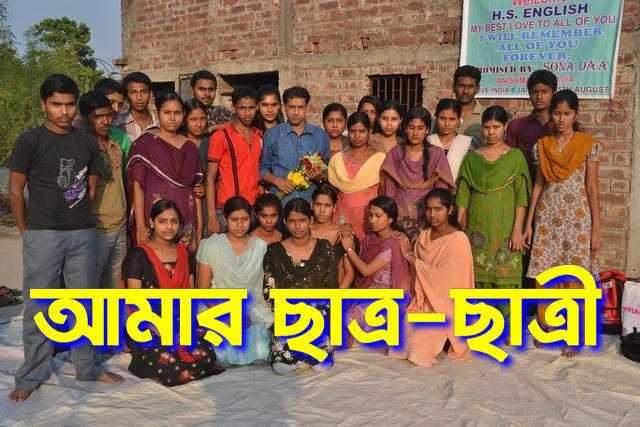

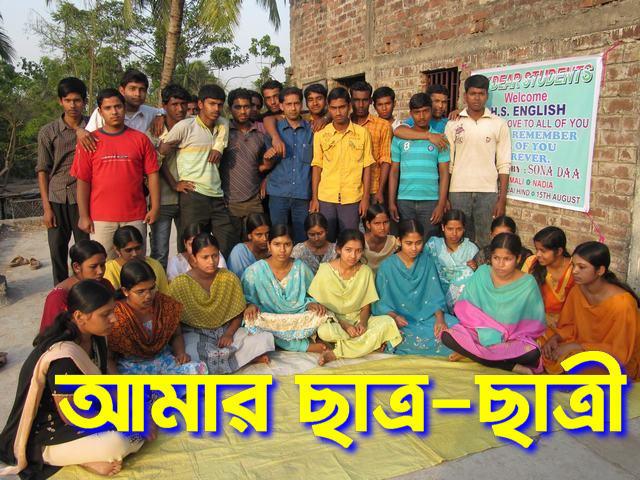










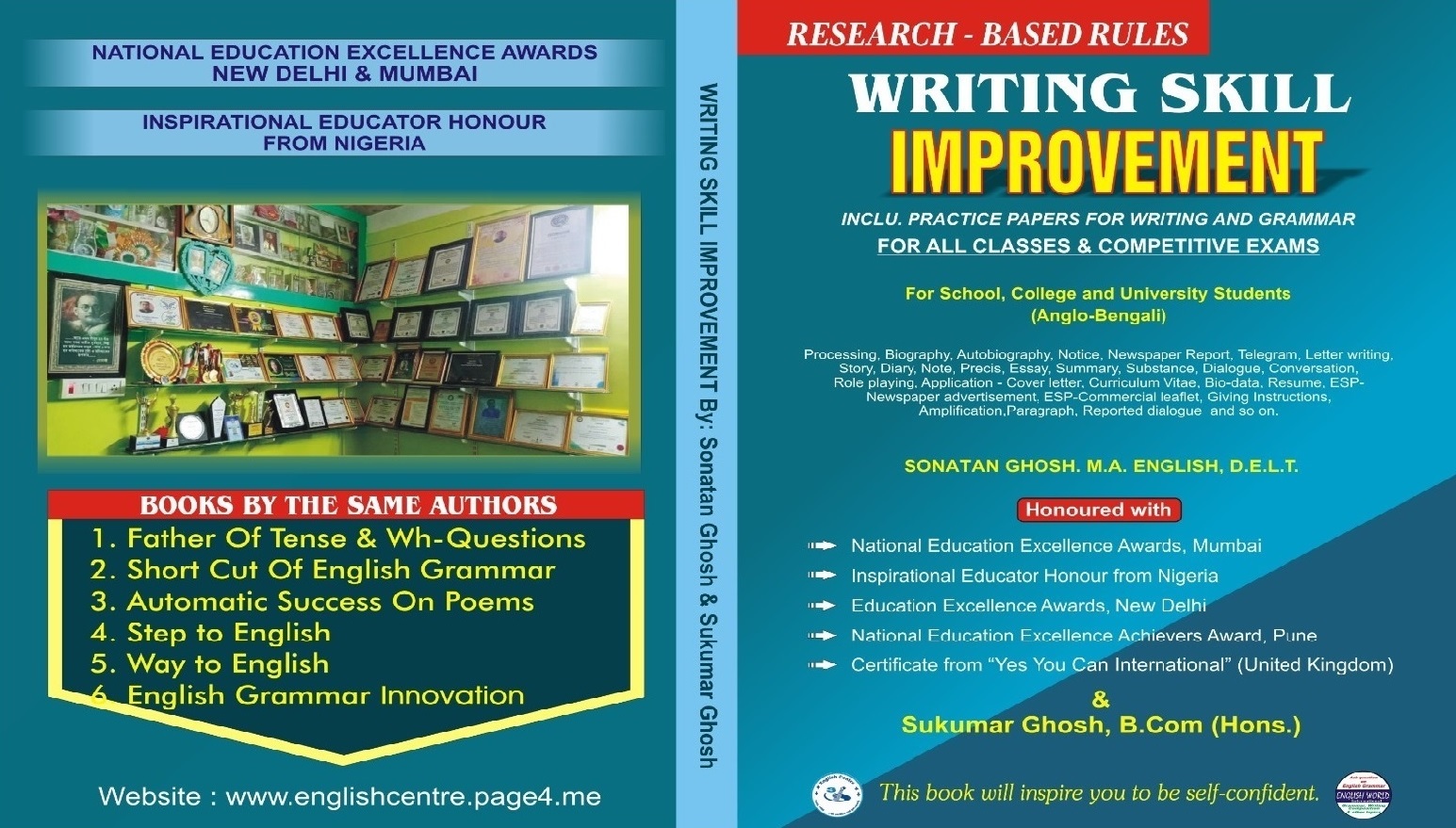

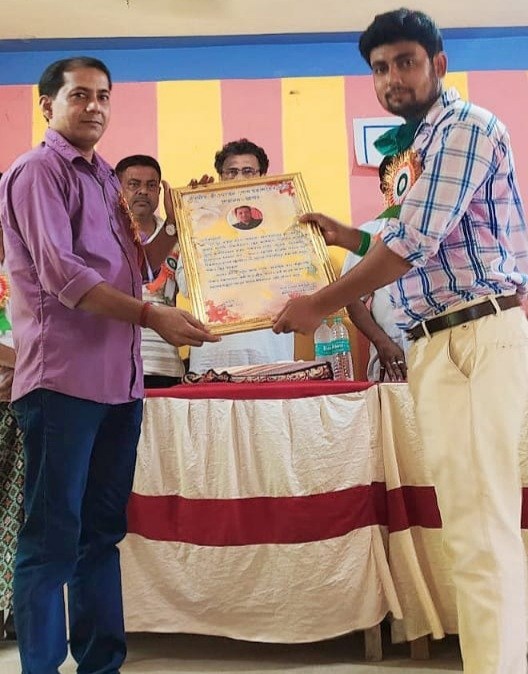

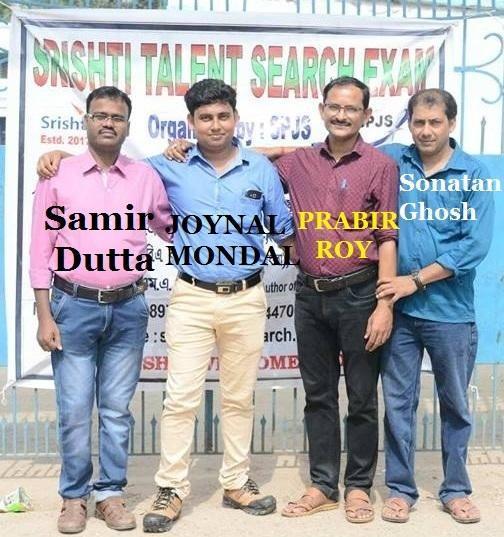




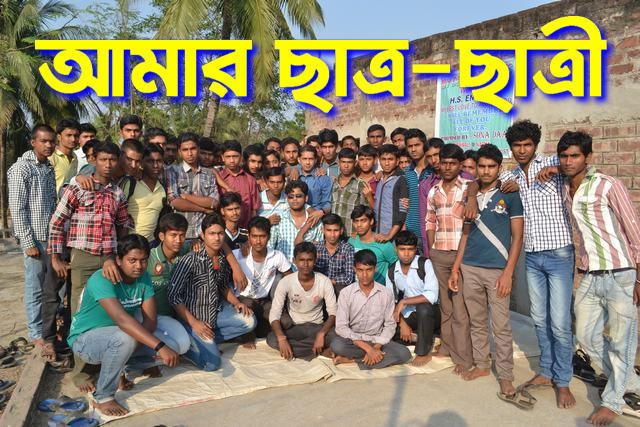
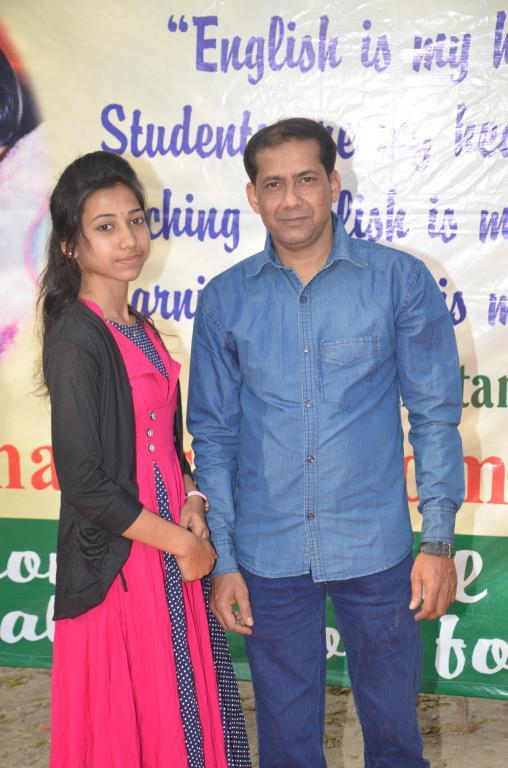

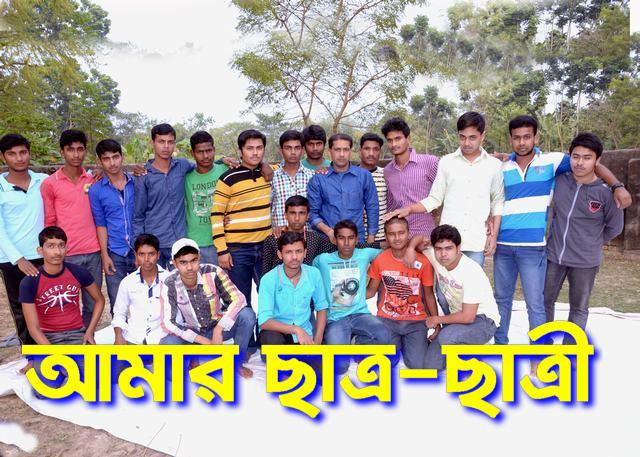



















 This is a free homepage created with page4. Get your own on www.page4.com
This is a free homepage created with page4. Get your own on www.page4.com